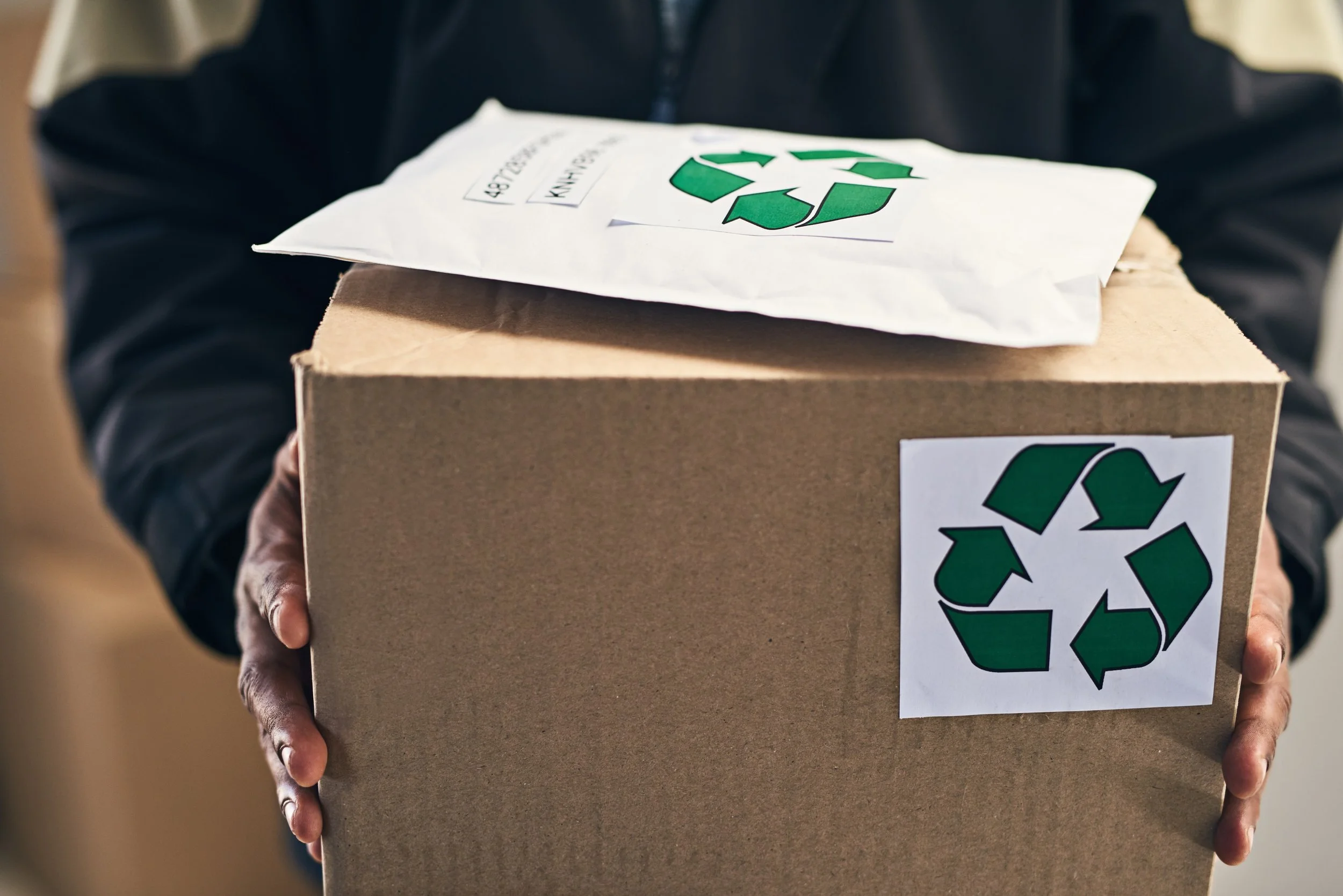Print Smart, Waste Less: Can TIJ Innovations Shape a Greener, More Sustainable Packaging Industry by 2027?
Single-use packaging and disposables exacerbate environmental degradation, but innovative coding and marking solutions could pave the way for smarter, more sustainable packaging. RYNAN Printing shares how Thermal Inkjet solutions can minimize waste and drive eco-friendly transformation in the packaging industry.
We have a mounting waste crisis. Annually, 141 million tonnes of plastic packaging are produced, and 40% of the Earth’s plastic waste comes from packaging. This makes packaging a major contributor to global plastic waste. The rise of e-commerce and single-use products has worsened the packaging waste problem. Packaging, made of materials like plastic, paper, and metal, serves to protect, ship, or store goods, but becomes waste once discarded. As the global packaging market size is projected to reach US$1.69 trillion by 2034, the environmental cost of packaging waste is expected to escalate, driving the urgent need for greener, innovative solutions.
Future-Ready Packaging: Driving Change with Thermal Inkjet Printing
With Sunrise 2027 on the horizon, manufacturers are prioritizing infrastructure investments, reducing operating costs, and optimizing operations to meet consumer and regulatory demands for sustainable solutions. While eliminating packaging materials entirely isn't feasible, efforts to cut packaging waste are evolving. Companies are adopting recyclable materials, minimizing labels, and leveraging innovative coding and marking technologies to drive meaningful change. Thermal Inkjet printing (TIJ) emerges as a key technology, offering precise, efficient, and eco-friendly benefits to transform current packaging practices.
How TIJ Tackles the Global Packaging Waste Problem
Thermal inkjet printing is rapidly gaining traction in packaging for high-quality, low-waste applications - ideal for businesses prioritizing efficiency and quality in industries such as e-commerce, food, and pharmaceuticals. Fueled by increased demand for sustainable, customizable, and cost-effective solutions, it offers high-resolution output on various substrates with minimal maintenance. RYNAN Printing weighs in on how TIJ addresses the rising demand for eco-friendly packaging solutions.
1. Optimizes Inventory with On-Demand and Short-Run Printing
In today's dynamic landscape, TIJ offers on-demand printing, eliminating the need for pre-printed materials that often go to waste. Furthermore, TIJ’s short-run capabilities and customizable printing enable tailored packaging for product diversification, reducing waste from mass production and/or outdated packaging.
2. Reduces Print Errors with Precision Printing
Pharmaceuticals and food & beverage industries demand precise coding to meet regulatory standards. As GS1 Sunrise 2027 approaches, 2D barcodes are set to be the standard for traceability. RYNAN’s B1040 series is a line of compact variable data TIJ printers, designed to support GS1 Traceability standards while delivering high-speed, high-quality coding solutions across diverse industries. TIJ provides the precision and high-resolution quality required to ensure regulatory compliance and safety. By cutting down on print errors/ misprinted packaging, material waste can be greatly minimized.
3. Minimizes Pre-printed Packaging Materials with Real-time Variable Data Printing
TIJ printers enable on-demand printing of variable data, such as barcodes, batch numbers, expiry dates, and QR codes, reducing waste from pre-printed packaging materials that may otherwise be discarded due to errors or changes. This capability supports businesses needing dynamic, customized/ direct printing on products, flexible packaging, or ad-hoc promotional materials. TIJ printers empower companies to adapt swiftly to market changes and regulatory requirements.
4. Cuts Waste with Optimal Ink Usage & Lowers Environmental Risks
With precise on-demand ink dispensing, TIJ printers optimize ink consumption while minimizing spillage and waste. The self-contained ink reservoir in a TIJ print cartridge dispenses ink droplets from the printhead only when required, significantly cutting volatile organic compounds (VOCs) and hazardous air pollutants (HAPs) by up to 90% compared to CIJ systems. Additionally, TIJ’s enclosed cartridges eliminate the risk of ink spills, removing the need for extra cleaning solvents that can harm the environment.
5. Increases The Recyclability of Packaging
TIJ can print on porous (cardboard, paper, wood, etc.), non-porous (plastics, metals, glass, flexible foil packaging, etc.), and even recyclable materials such as recycled paper and compostable films. Recent ink innovations enhance recyclability by making inks compatible with recycling processes, i.e., de-inking. This ensures that inks and labels are safely removed to prevent contamination during recycling, so that the recyclates are more easily processed and reused, encouraging a circular packaging economy.
RYNAN Printing’s Ink Filling Machine
6. Enhances Smart Packaging & Traceability
Smart labels, including QR codes and RFID tags, streamline supply chains by reducing waste and errors. For example, scanning a QR code on a smart packaging can provide consumers with recycling instructions for the packaging, and enable the tracking of returnable packaging back to its source. TIJ is preferred for printing text, barcodes, and QR codes on small or uneven surfaces. It can also print directly on RFID-enabled labels to complement the electronic data stored in the RFID chip. As TIJ produces clear, fine details, misprints are minimized, reducing waste materials. Furthermore, the high-resolution prints ensure easy scannability, which enables advanced tracking and supply chain management. TIJ integrates seamlessly with QR codes and RFID tags, enhancing smart packaging with precision. Conversely, CIJ is unsuitable for RFID systems due to poorer print quality, ink smudges, and overspray on RFID-enabled materials.
7. Improves Recyclability With Reusable Cartridges
Innovations in TIJ printhead design extend cartridge lifespans, reducing replacements and electronic waste. For example, our RYNAN B1040 Compact Variable Data Printer features nozzle switching and self-cleaning capabilities, prolonging the cartridge's lifespan. TIJ systems also offer recyclable or refillable cartridges, further minimizing e-waste. At RYNAN India, we partner with an e-waste management organization to collect used cartridges from our customers and extract usable components for recycling. Our customers can also opt for bulk supply systems that refuel up to 10 ink cartridges, improving cost efficiency and reducing cartridge waste.
8. Drives Sustainability Through Reduced Waste
Non-contact, direct product marking systems such as TIJ eliminate the need for adhesive labels, which often include backings that get discarded as waste. By marking on products directly, these systems help reduce overall material usage (including ribbons or plates) and waste generation.
Innovation to Impact: TIJ Powers the Future of Green Packaging
TIJ technology bridges innovation with impact, driving advancements in coding & marking systems and eco-friendly inks that champion green initiatives and a circular packaging economy. By minimizing waste and optimizing resource efficiency, TIJ empowers companies to meet environmental, social, and governance (ESG) criteria and achieve their sustainability ambitions.
In light of GS1 Sunrise 2027, TIJ remains at the forefront of green packaging solutions, paving the way for a more sustainable and resource-conscious future.



